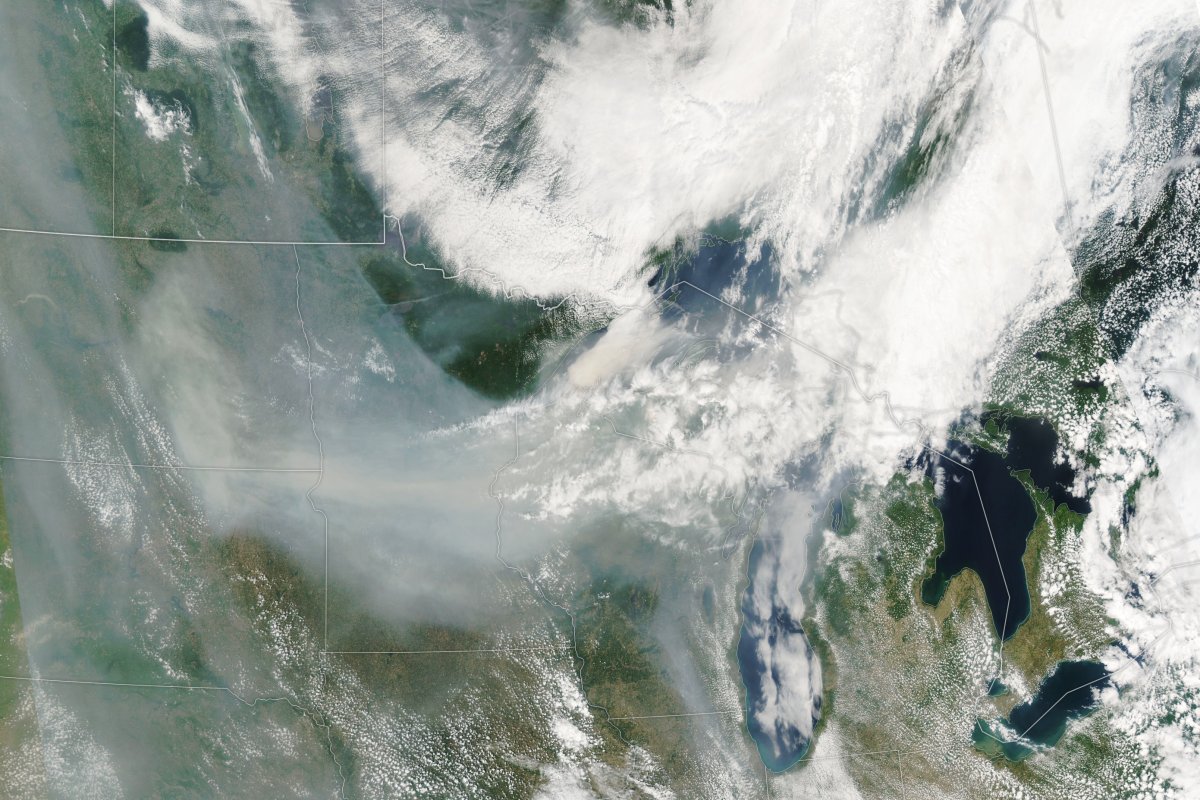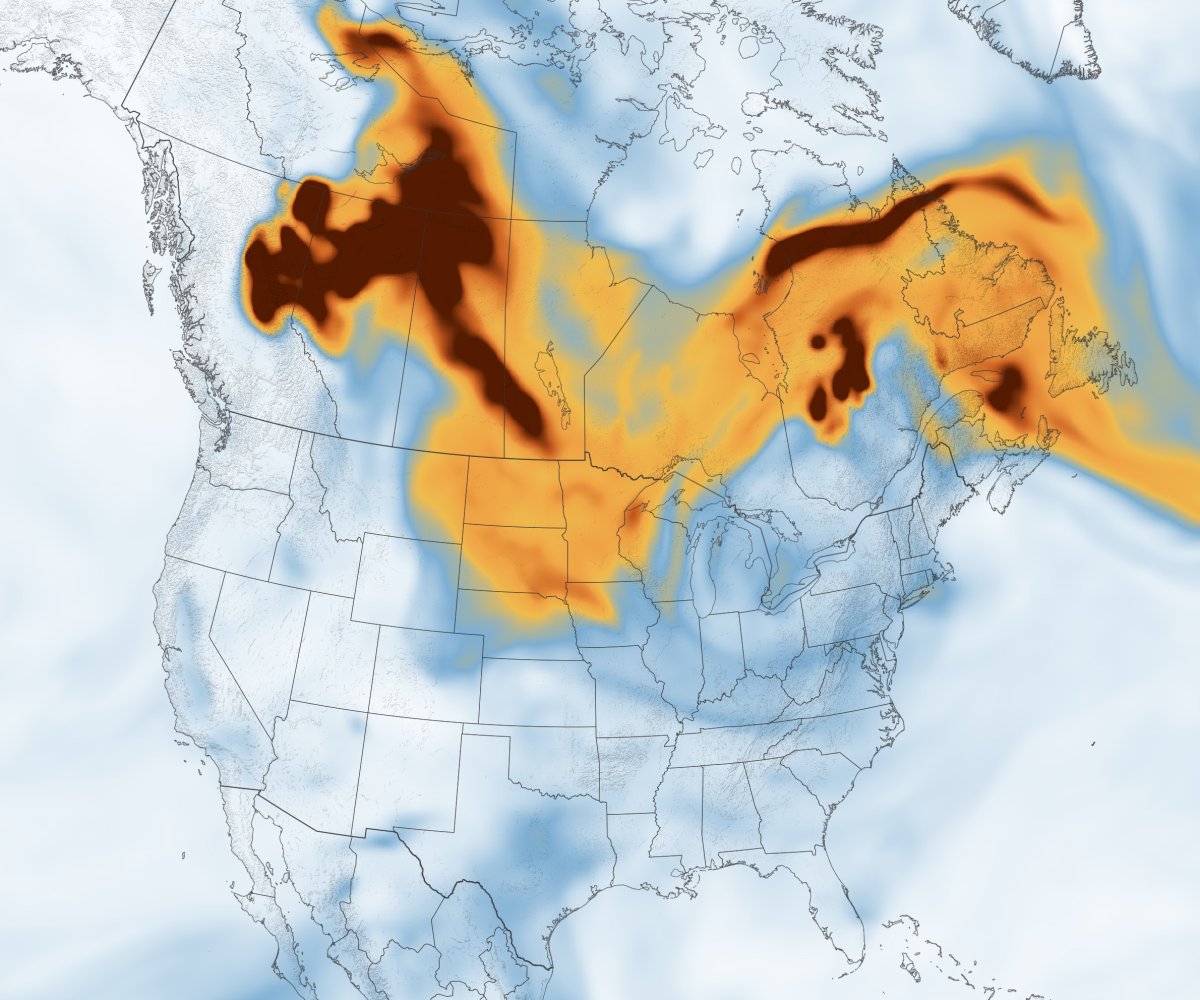Satellite images from NASA show how wildfire smoke in Canada descended upon the upper Midwestern United States on Wednesday.
The image captured by Moderate Resolution Imaging Spectroradiometer (MODIS) on NASA's Aqua satellite shows the wildfire smoke engulfing Minnesota, Wisconsin, and North and South Dakota on June 14, 2023. On this day, there were over 400 wildfires blazing out of control in Canada.
Many U.S. cities have been suffering from extremely poor air quality due to the smoke. Last week, the smoke reached New York City, where the skyline was barely visible through the haze. Since then, it has moved further across the country.
The air quality in Minnesota was particularly bad on Wednesday, which saw most of the central parts of the state suffering in a red "unhealthy" range, per the Environmental Protection Agency's Air Quality Index. A red range means that "Some members of the general public may experience health effects; members of sensitive groups may experience more serious health effects," according to the AQI.

Another image acquired by NASA shows just how dense the black carbon particles were in the smoke drifting across the U.S. These particles can cause severe health issues if inhaled over a prolonged period of time. Those with respiratory conditions can be particularly at risk.
The carbon was particularly dense in the Canadian provinces of British Columbia, Alberta and Saskatchewan.
Smoke from the wildfires continued to move south on June 15. Air quality alerts for Wisconsin and Minnesota were still in effect on that day, according to the National Weather Service.

The effects of wildfires are expected to be seen through the rest of the summer in the Northern U.S. The West is usually the region worst hit by wildfires, but this year tells a different story.
Michigan, Vermont, New Hampshire and Maine, as well as parts of Wisconsin and Minnesota, are at a high risk of wildfires this summer, a National Significant Wildland Fire Potential Outlook report predicts.
This region has seen incredibly dry conditions this year, while the West was battered with intense rain and snow over the winter.
"The possibility of large wildfires is above-average in the northern Great Lakes, and Northeastern US regions this summer because of above-average temperatures and below-average precipitation, which are expected to continue through August," Philip Higuera, professor of fire ecology at the W.A. Frankie College of Forestry and Conservation previously told Newsweek.
Scientists believe wildfires have worsened in recent years due to climate change. In 2022, there were 68,988 fires across the U.S., which burned 7.57 million acres, according to the U.S. National Interagency Fire Center. This compares with 58,985 wildfires reported in 2021.
Do you have a tip on a science story that Newsweek should be covering? Do you have a question about the wildfires? Let us know via science@newsweek.com.
Uncommon Knowledge
Newsweek is committed to challenging conventional wisdom and finding connections in the search for common ground.
Newsweek is committed to challenging conventional wisdom and finding connections in the search for common ground.
About the writer
Robyn White is a Newsweek Nature Reporter based in London, UK. Her focus is reporting on wildlife, science and the ... Read more
To read how Newsweek uses AI as a newsroom tool, Click here.






